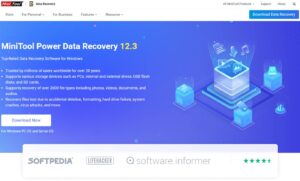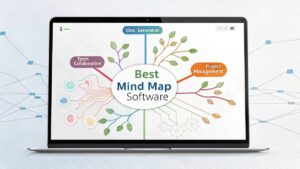In the ever-evolving construction industry, leveraging the right software tools can significantly enhance efficiency, reduce errors, and streamline project workflows. Construction software encompasses a broad range of applications designed to aid in the planning, execution, and completion of construction projects.
The importance of using construction software in modern projects cannot be overstated. With the complexities involved in construction projects, from managing various tasks and resources to ensuring safety compliance and handling finances, having a robust software solution is indispensable. It not only helps in maintaining organization but also facilitates better communication among team members, leading to more cohesive and successful project outcomes.
This document provides an overview of the key features to look for in construction software, including project management, document management, financial management, collaboration tools, quality and safety management, mobile accessibility, and analytics and reporting. Understanding these features can help you make informed decisions when selecting the best software to meet your specific project needs.
Project Management
Task Scheduling and Timelines
Effective task scheduling and timeline management are crucial components of successful project management in the construction industry. Construction software typically offers tools for creating detailed project schedules that outline each task, milestone, and deadline. These tools enable project managers to allocate appropriate time for each phase of the project, anticipate potential delays, and implement corrective measures proactively.
Gantt charts and other visual planning tools can provide a clear, intuitive view of the entire project timeline, helping stakeholders stay informed and aligned.
Resource Allocation
Resource allocation features in construction software are designed to optimize the usage of both human and material resources. By providing a comprehensive overview of resource availability, demand, and utilization, these tools help project managers assign tasks to the right personnel, ensure that equipment and materials are efficiently distributed, and avoid over-allocation or underutilization of resources. This balanced approach not only maintains productivity but also minimizes wastage, ultimately contributing to the project’s cost-effectiveness and timely completion.
Progress Tracking and Reporting
Progress tracking and reporting tools are essential for monitoring the status of construction projects in real-time. These features allow project managers to update the progress of various tasks, track completed and pending activities, and identify any bottlenecks or issues early on. Construction software often includes customizable reporting templates and dashboards that present key performance indicators (KPIs) and metrics in an accessible format. This transparency ensures that all stakeholders have up-to-date information, fostering accountability and enabling data-driven decision-making.
Document Management
Digital Storage and Organization of Project Documents
Managing project documents efficiently is paramount in the construction industry, where numerous blueprints, contracts, permits, and plans are involved. Construction software offers digital storage solutions that allow for the secure and organized storage of all these critical documents in a centralized location. This digital organization helps avoid the chaos of manual paperwork, reduces the risk of lost documents, and makes it easier to maintain comprehensive records for every project.
Easy Access and Sharing of Files
Easy access and seamless sharing of files are key features of modern construction software. By storing documents in the cloud, team members can access essential files from any location at any time, whether they are on-site or in the office. This accessibility ensures that everyone is on the same page, promoting collaboration and reducing delays caused by misunderstandings or miscommunications. Additionally, built-in sharing capabilities allow for quick distribution of documents to clients, subcontractors, and other stakeholders.
Version Control and Document History
Version control and document history are critical for maintaining the integrity and accuracy of project documentation. Construction software typically includes version control features that track changes made to documents, keeping a comprehensive history of edits, updates, and approvals. This ensures that everyone is working with the most current version of a document and allows project managers to revert to previous versions if necessary.
By managing document versions effectively, the software helps prevent costly errors and miscommunications, fostering a smoother workflow and more reliable project outcomes.
Financial Management
Budgeting and Cost Estimation
Budgeting and cost estimation are foundational elements of financial management in construction projects. Construction software aids in creating detailed budgets by accounting for all potential costs, including labor, materials, equipment, and subcontractor fees. These tools often utilize historical data and predictive analytics to provide accurate cost estimates, ensuring that project managers can anticipate expenses and allocate resources efficiently. By offering a clear financial roadmap, budgeting software helps prevent cost overruns and keeps projects financially viable.
Expense Tracking
Expense tracking tools in construction software provide a real-time overview of project expenditures, allowing for meticulous monitoring of all costs. These features facilitate the recording of every financial transaction related to the project, from procurement to payroll, making it easier to track spending against the initial budget. Advanced expense tracking solutions often include automated alerts for overspending, as well as detailed reports that highlight spending patterns, enabling better management of the project’s financial health.
Invoicing and Financial Reporting
Invoicing and financial reporting capabilities streamline the administrative aspects of construction project management. Construction software enables the creation of professional invoices that can be customized to reflect different phases of the project, ensuring that billing is accurate and timely. Financial reporting tools compile comprehensive financial data into accessible reports that provide insights into the project’s financial status.
These reports can be tailored to meet the needs of various stakeholders, offering transparency and facilitating informed decision-making. With these features, construction software helps maintain financial integrity and enhances the overall efficiency of the project’s financial operations.
Collaboration Tools
Real-time Communication Channels
Effective real-time communication is crucial for the seamless execution of construction projects. Construction software often includes a variety of communication tools such as instant messaging, chat rooms, and video conferencing. These channels enable team members to communicate instantaneously, whether they need to discuss urgent issues or coordinate on daily tasks. By facilitating quick and direct communication, these tools help keep everyone informed and aligned, reducing the risk of miscommunication and delays.
Team Collaboration on Tasks
Team collaboration features within construction software are designed to enhance coordination and cooperation among team members. These tools typically allow for the assignment of tasks, tracking of task progress, and collaboration on shared documents.
Team members can comment on tasks, update their status, and share insights directly through the platform. This collaborative environment encourages a more organized and efficient workflow, ensuring that everyone involved in the project can contribute effectively and stay accountable for their responsibilities.
Integration with Other Software
Integration capabilities are a key component of comprehensive construction software. By allowing seamless integration with other essential tools such as email platforms and cloud storage services, construction software ensures that all relevant information and communications are easily accessible in one place. This interoperability eliminates the need to switch between multiple applications, saving time and reducing the likelihood of data silos.
Whether it’s integrating with popular email services for streamlined communication or linking with cloud storage for easy document sharing, these integrations help create a cohesive and efficient project management experience.
Quality and Safety Management
Inspection Checklists and Protocols
Inspection checklists and protocols are essential components of quality and safety management in construction projects. Construction software provides digital checklists that allow project managers and inspectors to ensure all safety measures and quality standards are met consistently. These checklists can be customized to fit specific project requirements and can include criteria such as material quality, structural integrity, and compliance with safety procedures.
By digitizing these protocols, the software helps streamline inspections, ensuring thorough and consistent evaluations and reducing the risk of oversights.
Incident Reporting and Tracking
Incident reporting and tracking tools are crucial for maintaining a safe construction site. Construction software enables the quick and accurate logging of any incidents, from minor injuries to major safety breaches. This functionality allows project managers to document the details of each incident, including time, location, involved personnel, and the nature of the incident.
Robust tracking features ensure that incidents are monitored and analyzed over time, facilitating the identification of patterns or recurring issues. With this data, project managers can implement preventive measures to enhance site safety and reduce the likelihood of future incidents.
Compliance with Safety Regulations
Ensuring compliance with safety regulations is a top priority for any construction project. Construction software helps project managers stay up-to-date with current safety laws and industry standards. These tools often include built-in compliance checklists and automated reminders for scheduled audits and inspections.
Additionally, the software can generate compliance reports that detail the project’s adherence to safety rules, making it easier to demonstrate compliance during inspections by regulatory bodies. By integrating these features, construction software aids in mitigating risks, avoiding legal penalties, and promoting a safer work environment.
Mobile Accessibility
Mobile App Features
In today’s fast-paced construction environment, mobile app features play a vital role in maximizing efficiency and productivity. Construction software often includes robust mobile applications that allow team members to stay connected and manage their tasks while on the go. These apps typically provide functionalities such as real-time notifications, access to project documents, and communication tools, ensuring that team members have the resources they need at their fingertips. By leveraging mobile technology, these apps help streamline workflows, reduce downtime, and improve overall project coordination.
On-site Data Entry and Updates
One of the key advantages of mobile accessibility is enabling on-site data entry and updates. Field personnel can input data directly into the system from their mobile devices, whether they are documenting progress, updating inventory, or completing inspection checklists. This real-time data entry ensures that information is accurate and up-to-date, which is essential for making informed decisions. Additionally, it reduces the need for manual data entry back at the office, minimizing errors and saving valuable time.
Remote Access to Project Information
Remote access to project information is crucial for maintaining project momentum and ensuring that all stakeholders are on the same page. Mobile apps provide the ability to access critical project data from anywhere, whether you’re on-site, in transit, or working remotely. This includes access to schedules, budgets, reports, and communication logs.
With remote access, team members can stay informed about the project’s status, address issues promptly, and collaborate effectively, regardless of their physical location. This capability enhances flexibility and responsiveness, contributing to the successful execution of construction projects.
Analytics and Reporting
Data Collection and Analysis
Effective data collection and analysis are pivotal to the success of any construction project. Construction software incorporates advanced data collection tools that automatically gather information from various sources, including project schedules, budgets, and on-site activities.
This data is then analyzed to provide insights into project performance, identifying trends, strengths, and areas for improvement. Accurate and thorough data analysis helps project managers make informed decisions, optimize resource allocation, and enhance overall project efficiency.
Customizable Reports and Dashboards
Customizable reports and dashboards are essential features of modern construction software, providing stakeholders with tailored insights into project progress and performance. Users can create bespoke reports that focus on specific metrics such as cost, timeline, resource usage, and quality control.
These reports can be generated on-demand or scheduled at regular intervals, ensuring that project managers always have up-to-date information. Interactive dashboards allow for real-time monitoring, offering a visual representation of key performance indicators (KPIs) and enabling quick identification of issues that need attention.
Predictive Analytics for Future Projects
Predictive analytics is a game-changer in construction project management, offering the ability to forecast future project outcomes based on historical data. Construction software leverages machine learning algorithms and statistical models to predict potential risks, resource needs, and completion timelines for upcoming projects.
By utilizing predictive analytics, project managers can proactively address potential challenges, allocate resources more efficiently, and develop more accurate project plans. This forward-looking approach not only enhances project success rates but also enables the continuous improvement of processes and practices.
Conclusion
In summary, construction software offers a myriad of features crucial for the successful management of any project. Key highlights include improved incident tracking and compliance with safety regulations, robust mobile app features such as on-site data entry and remote access to project information, and powerful analytics and reporting capabilities. These tools not only streamline workflows but also enhance communication and decision-making, allowing project managers to monitor progress and optimize resources effectively.
The integration of construction software into project management processes brings a wealth of benefits. It boosts efficiency by automating routine tasks, improves accuracy with real-time data updates, and fosters collaboration through seamless communication tools.
Moreover, the analytics and reporting features provide critical insights that drive data-driven decision-making, helping to avoid potential pitfalls and ensure projects stay on track. Ultimately, construction software enhances overall productivity, safety, and quality, leading to more successful project outcomes.
With the numerous advantages that construction software offers, it is highly recommended to explore various software options that align with your specific project needs. Assessing features that can address your unique challenges and requirements will enable you to select a solution that best supports your goals.
By investing in the right construction software, you can unlock new levels of efficiency and effectiveness in managing your projects, setting the stage for long-term success.



















